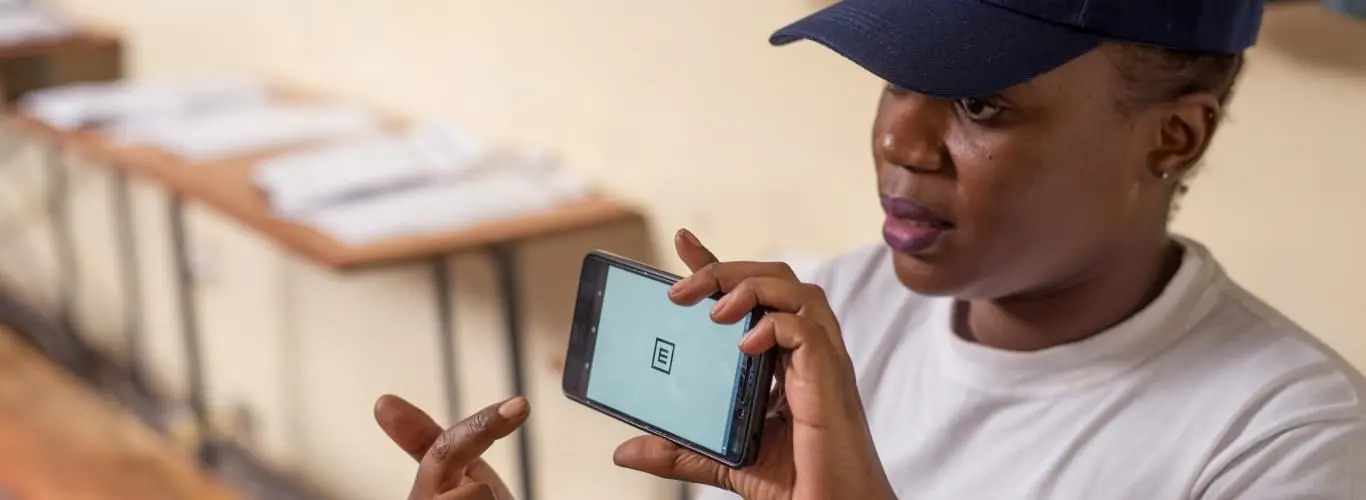We maintain a strong research and teaching collaboration with the International Centre for Eye Health (ICEH), a world-leading academic centre based at the London School of Hygiene & Tropical Medicine.
Our research with ICEH and other partners has enabled us to develop, validate and continuously improve our tools. Our software and data intelligence platform is now powering rapid assessments and eye health programmes across Africa and Asia.
Validating our vision test
Peek Acuity, our distance vision check app, is embedded into our software for rapid assessments and eye health programmes in schools, communities and workplaces. Research published in JAMA Ophthalmology in 2015 shows that Peek Acuity is at least as accurate as conventional distance vision checks when used by non-specialist community health workers in Kenya.
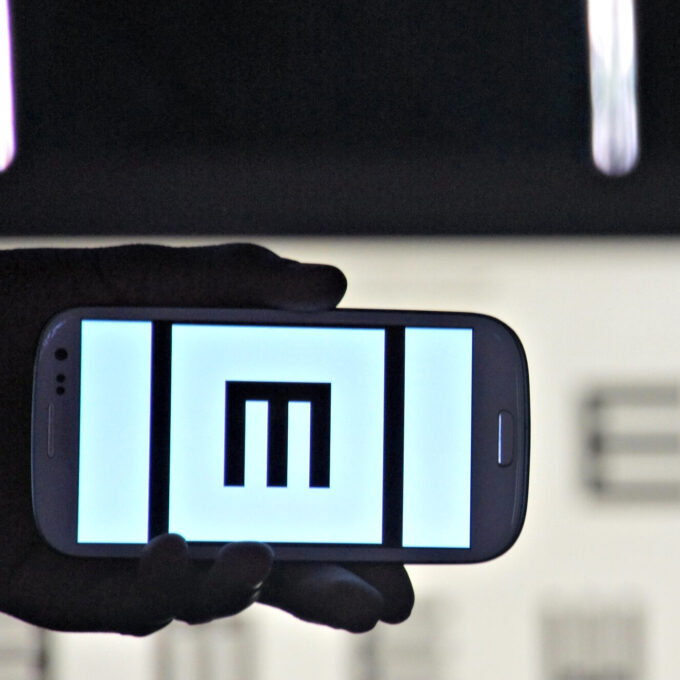
Trial of the Peek Acuity app in Nakuru, Kenya.
Proving the power of Peek
One of our earliest trials, in India in 2017, helped us refine our workflow for school eye health programmes and showed that Peek can be used to track the impact of eye health interventions. A school eye health programme in Kenya powered by Peek was evaluated in a randomised controlled trial comparing it to a conventional school eye health programme. The results, published in The Lancet Global Health in 2018, show that more than double the proportion of children attended follow-up appointments with Peek.
Another randomised controlled trial in Kenya compared a community eye health programme powered by Peek to a conventional programme. Published in The Lancet Digital Health in 2020, the study showed that with Peek, almost three times the number of people with eye problems were connected to care compared to conventional programmes.
A further study from Kenya has provided proof-of-concept that an adapted version of Peek software can support community volunteers to identify, triage and refer people accurately. We are now using these results to inform our product development cycle, so that our technology continually improves and meets our partners’ changing needs.
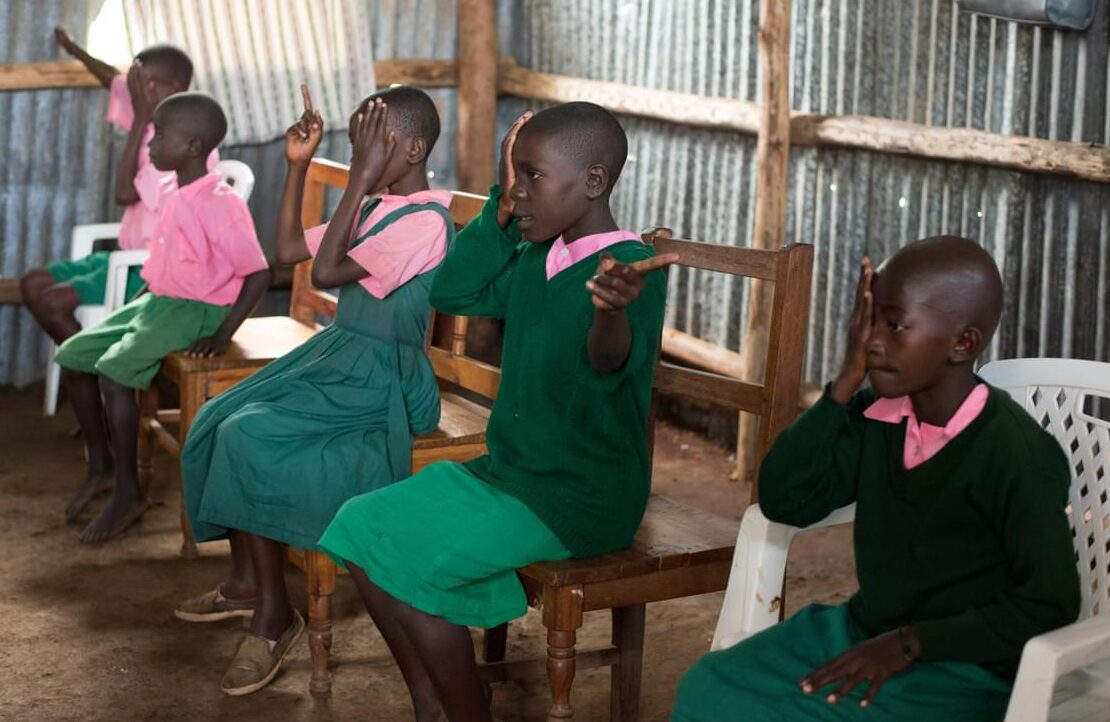
Vision screening at a school in Kenya. Credit: Rolex/Joan Bardeletti
Expanding our tools
Near-vision impairment affects nearly half of all people living with vision problems. Following the success of our Peek Acuity test for distance vision, we began work to address the issue of untreated near-vision impairment. Our near vision smartphone-based visual acuity test was compared to conventional near vision testing in Nepal. In 2022, the results of the validation study were published in the Translational Vision Science & Technology Journal. They showed the smartphone-based test could be used to identify people with near visual impairment, with high levels of agreement with the conventional test. We plan to begin integrating the near vision test into our software in 2024, for use in eye health programmes.
Supporting the sector
Peek team members regularly collaborate on research across the eye health sector. Our team has contributed to reviews of the economic impact of vision loss, Rapid Assessment of Avoidable Blindness (RAAB) eye health surveys and The Lancet Global Health Commission on Global Eye Health.
Research briefings
Find out more about these key publications
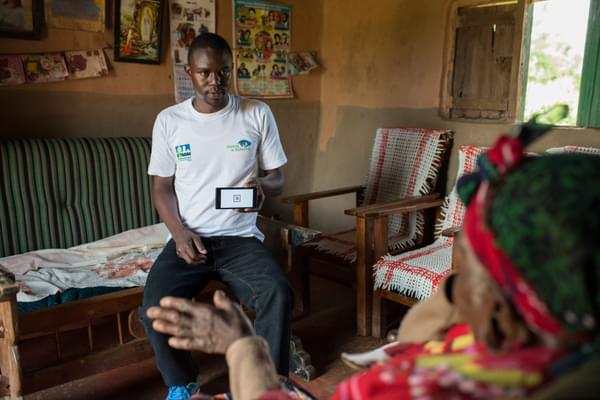
Increasing access to eye care services using Peek
Almost three times the number of people with eye problems were connected to care using Peek, compared to conventional programmes.
Read more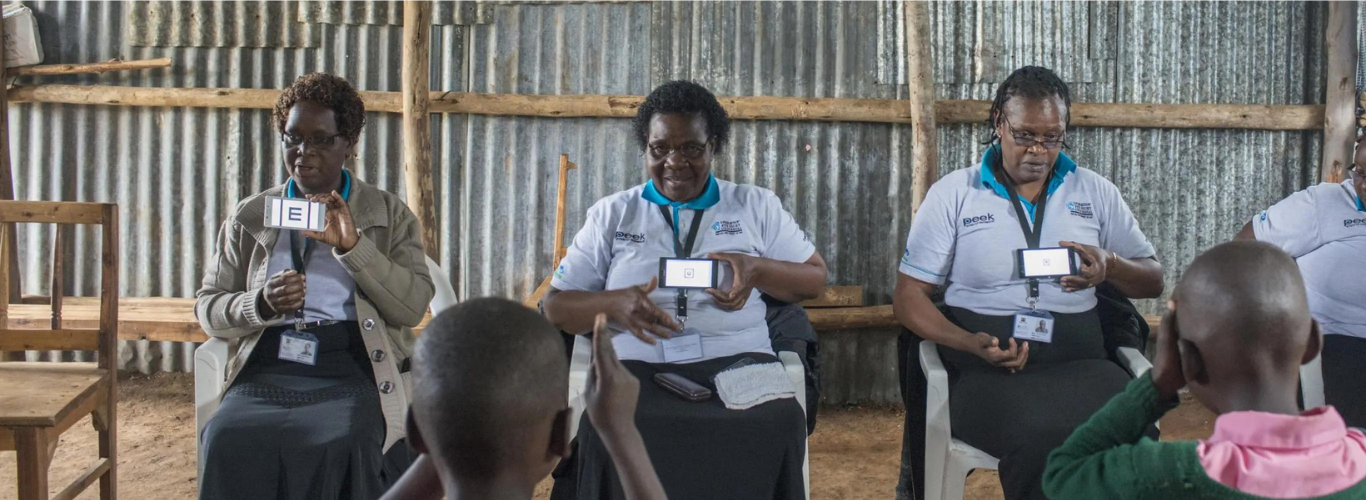
Peek boosts school eye health programmes
Peek more than doubled the proportion of children attending follow-up appointments compared to conventional school eye health programmes.
Read more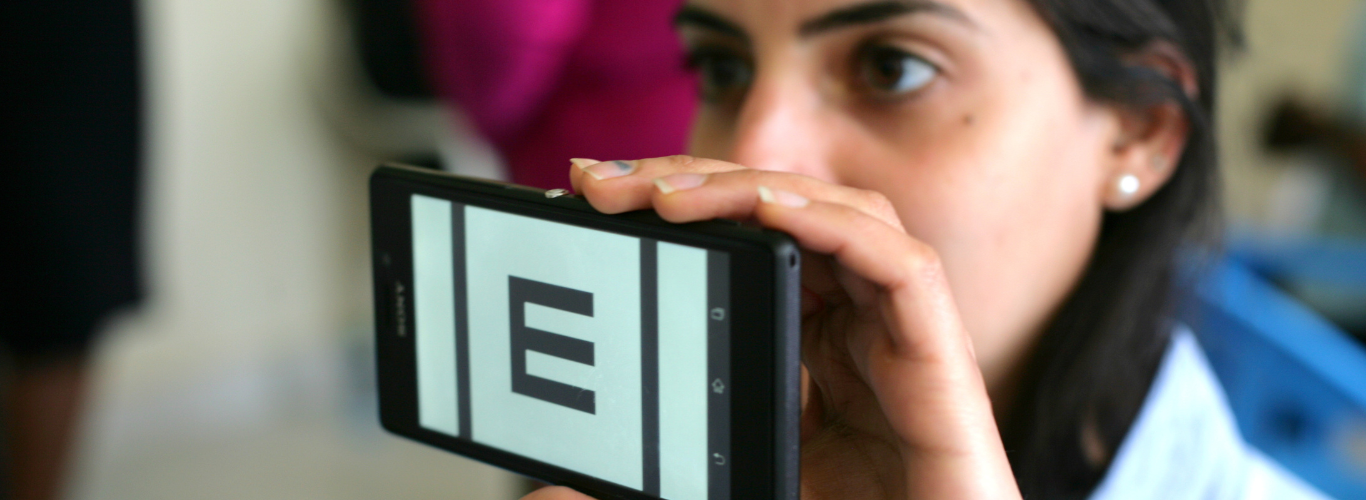
Vision test validation: the Peek Acuity app
Peek Acuity, our smartphone-based distance vision check app, is as accurate as traditional charts.
Read more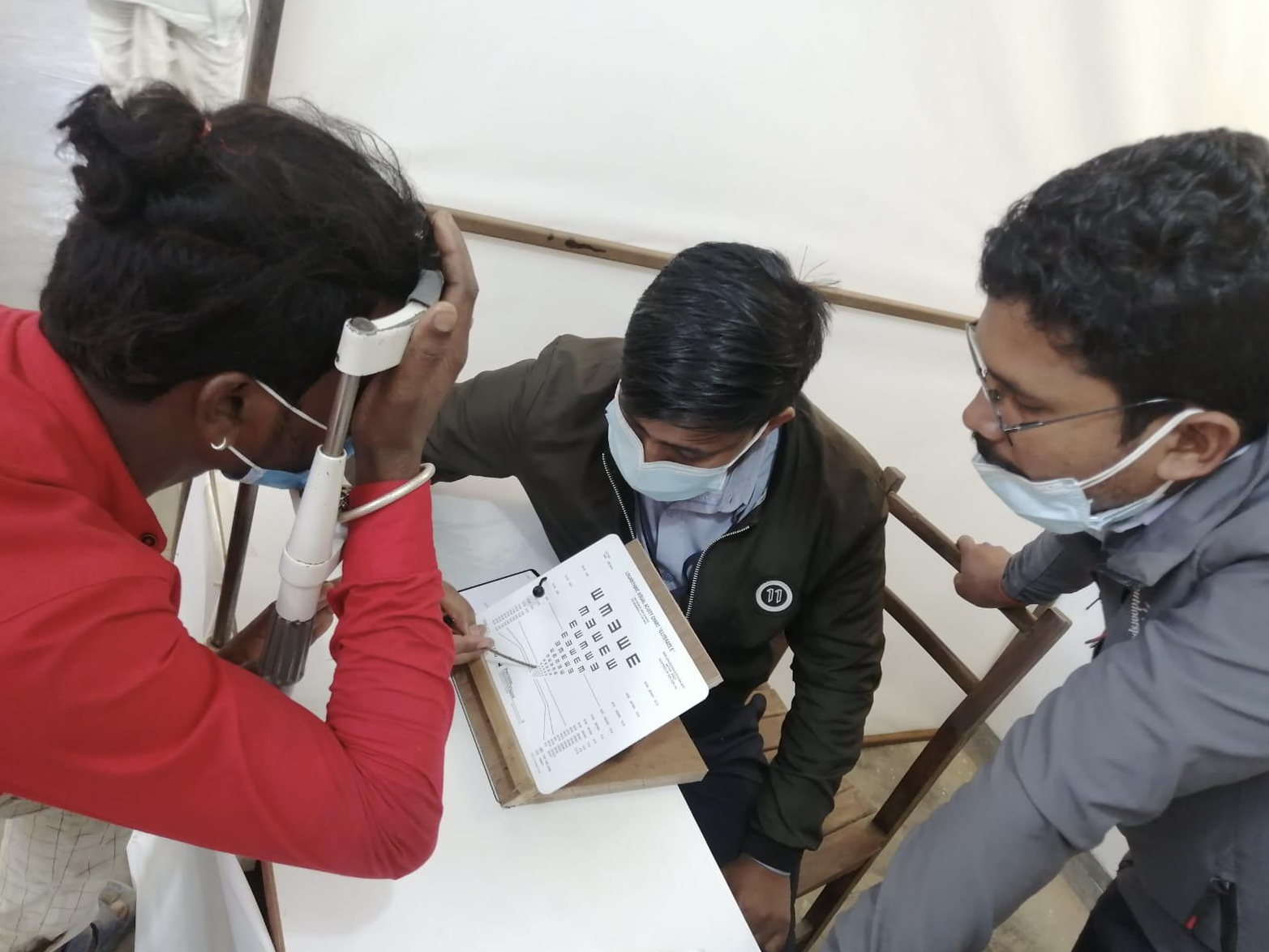
Validating our smartphone near vision test
A smartphone-based visual acuity test for near vision has been developed by Peek and validated with our research partners.
Read more